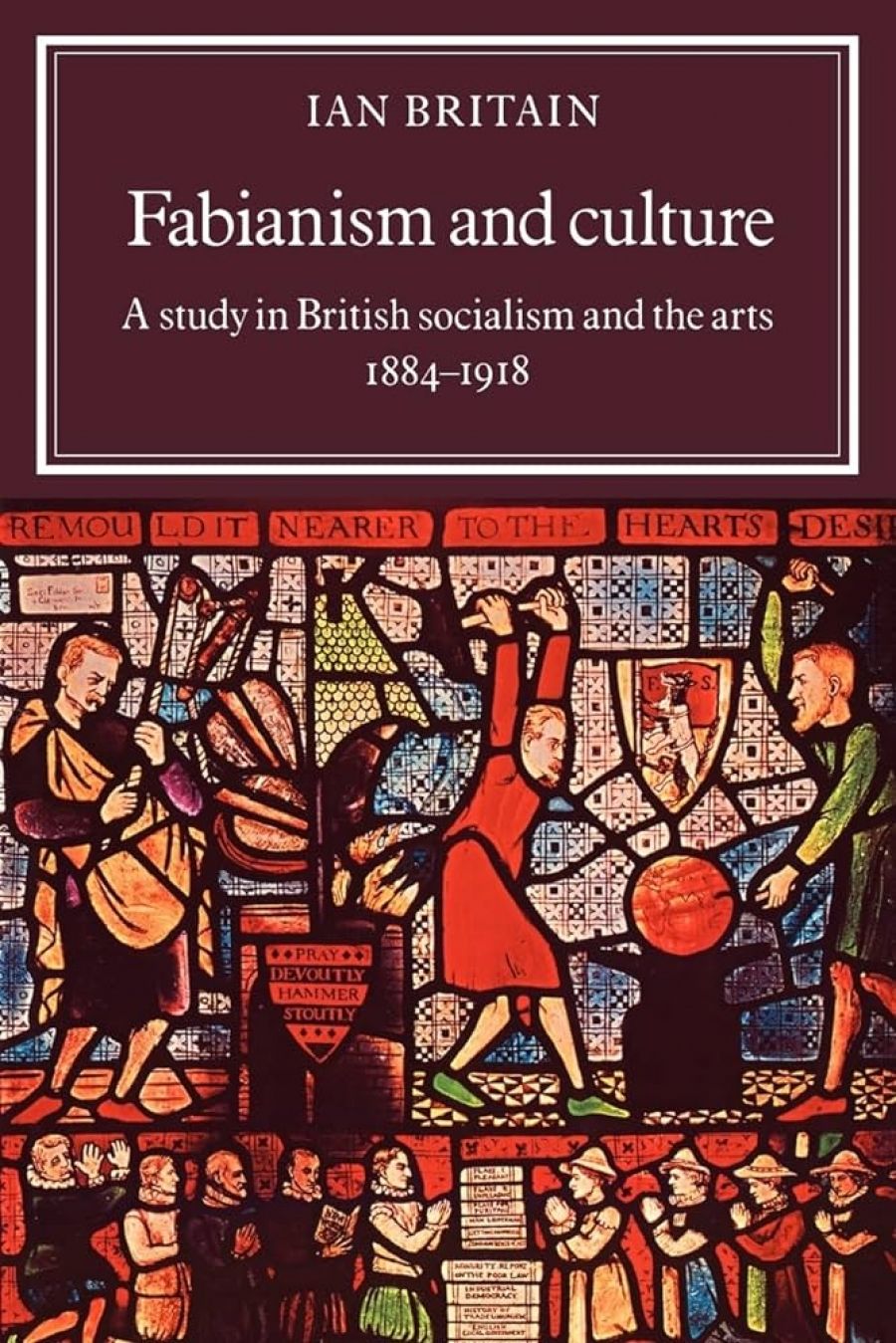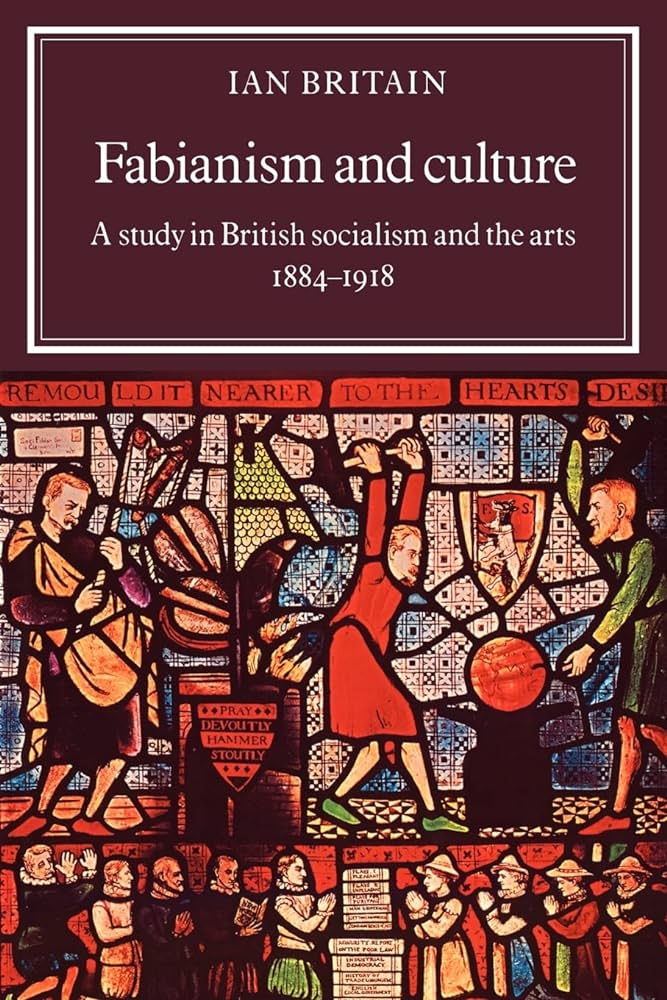
- Free Article: No
- Contents Category: Non-fiction
- Review Article: Yes
- Article Title: Drawing room of life
- Online Only: No
- Custom Highlight Text:
Philistinism and anti-intellectualism enjoy each other’s company so much that it can be bracing to be reminded that it is possible to be both an intellectual and a philistine. That, at least, was a charge levelled at the British Fabians by some former members of the Fabian Society – and by some historians too quick to take those apostates at their word. The Fabians had unimpeachable intellectual credentials, but their preoccupation with policy, the mechanics of municipal and national government, and strategies for getting their policies implemented (initially by ‘permeating’ existing political parties, and later, in the case of Beatrice and Sidney Webb, through the Labour party) was such that they could appear ascetic and unmoved by the pleasures – and the potential – of literature and the arts.
- Book 1 Title: Fabianism and Culture
- Book 1 Subtitle: A study in British socialism and the arts 1884–1918
- Book 1 Biblio: CUP, $89.95 pb, 344 pp
- Book 1 Cover Small (400 x 600):

- Book 1 Cover (800 x 1200):

Ian Britain’s book challenges those estimates of Fabianism, examining the society’s initiatives in the arts and arguing that culture played an important part in the Fabians’ vision of a socialist society. Socialism, Beatrice Webb remarked in 1893, would collectivise ‘the kitchen of life’ so that all citizens ‘may have freedom for the drawing-room of life’.
Fabianism and Culture was first published in 1982, and while the stock of Fabianism might not have appreciated since then, the intersection between left-wing politics and the arts, and especially ‘public’ uses of the arts, has continued to elicit stimulating work by British historians. One of Ian Britain’s subjects remarked in a 1915 tract on ‘The Arts of Use’ that communal ownership of railway stations and trams would lead to popular regard for their design and workmanship; a line of scholarly kinship runs from Britain’s book to Michael T. Saler’s recent study of Frank Pick’s redesign of the London Underground as a gigantic piece of functional public art.
Some Fabians came to socialism via cultural or artistic concerns. They rejected industrial capitalism because of the ugliness it wrought as well as its degradation of individuals and their communities. This Ruskinian critique of capitalism would inspire some conservatives, as well as a variety of socialist or quasi-socialist groups, among them Thomas Davidson’s Fellowship of the New Life, which in the 1880s included several people who would soon become founding members of the Fabian Society. The idea of capitalism as inimical to beauty and genuine popular art was also an important element in William Morris’s thought, and over several chapters Britain analyses the writings of the early Fabians to reveal their debt to Morris’s conception of a socialist society. Morris haunts the pages of Britain’s book as the standard for a socialism that values the arts, one that Fabianism will inevitably be measured against.
Britain makes a convincing case that the Fabians were motivated, at least initially, by artistic and cultural concerns. But if Fabianism had ‘literary and artistic origins’, it doesn’t necessarily follow that the arts played a big part in the Fabian Society’s theory and practice. Britain admits this even as he makes a claim for culture’s importance to Fabianism: ‘In laying the weight of their emphases on the preparatory methods – largely economic in nature – by which the general reordering of society was to be brought about, the Fabians did not lose sight of their ultimate aesthetic and cultural aims.’ That ‘preparatory’ is technically correct, but a little too technically.
One of the great strengths of Fabianism and Culture is that Britain examines a wide array of Fabian Society members in his discussion of the Fabians’ actual ‘cultural’ work, rather than depending on George Bernard Shaw and H.G. Wells. Most of the cultural activities of Fabians other than these two titans fall into two categories: discussions of contemporary art and culture; and activities such as the Fabian summer schools and the work of the Stage Society. The chapter on the summer schools and the Stage Society is, for me, the most exciting in the book. Drawing on various and rich sources, Britain shows Fabians at work in cultural activities, staging plays, getting responses from Ibsen, debating the appropriateness of entertainment at the Fabian summer school, and so on. It is in this chapter, too, that Britain is at his most writerly and engaging; the sober prose of the other chapters gives way to contractions and words like ‘knees-up’ and ‘flummery’.
The chapters dealing with the Fabians’ positions on the place of the arts and the nature of working-class popular culture are less satisfying. In part, this is because Britain doesn’t put this body of thought into a wider context of cultural criticism. He sensitively discusses the Fabians’ ambivalent judgments about music hall and probes the ways in which they were ‘élitist’ (Beatrice Webb’s ‘drawing-room’ analogy hints at a rather middle-class conception of ‘culture’). But this wasn’t just a Fabian discourse. Independent Labour Party figures and others expressed comparable opinions on working-class entertainments. Similarly, the Fabian commentaries on popular reading habits that Britain discusses were part of a larger conversation in the 1890s and 1900s about what one Fabian later dubbed ‘the new reading public’ and the political implications of popular reading. It would have been good to compare these discussions produced under Fabian auspices with Arnold Bennett’s contemporaneous books on popular literary taste, which articulated a vision of ‘democratic’ cultural life accommodated to the market. (Bennett was a friend of the Webbs and was at some time a member of the Fabian Society, but Britain does not spell out the extent of his involvement.) That the Fabians’ thinking on culture was not especially distinctive doesn’t make it unimportant: but it means that it was more significant for the history of Fabianism, and socialism more generally, than for the history of ‘culture’ and its meanings and roles.


Comments powered by CComment